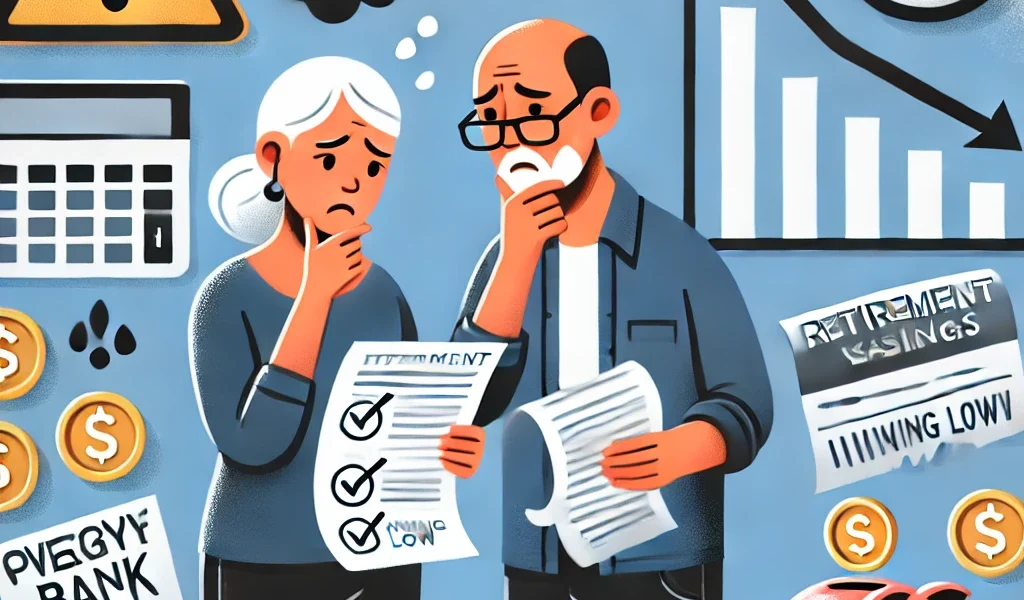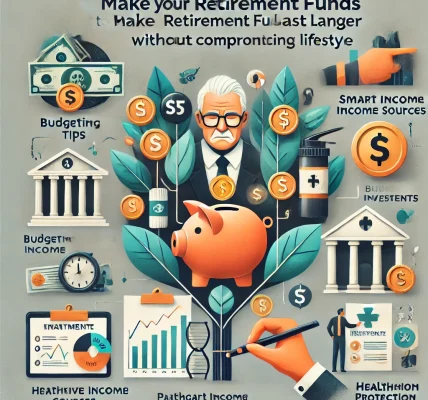Planning for retirement is one of the most important financial steps you will take in your lifetime. However, many people make critical mistakes that can jeopardize their financial security in their golden years. To ensure a comfortable and stress-free retirement, it is essential to recognize and avoid these common pitfalls.
In this guide, we will explore the most frequent retirement planning mistakes and provide actionable solutions to help you stay on track toward a secure future.
1. Delaying Retirement Savings
One of the most significant mistakes people make is waiting too long to start saving for retirement. Many believe they have plenty of time and prioritize other financial goals instead. However, delaying savings can have long-term consequences.
Why It’s a Mistake:
- You miss out on the benefits of compound interest, where your money grows over time.
- You may need to save significantly more later to catch up.
- A shorter investment timeline means you have fewer opportunities to recover from market fluctuations.
How to Avoid It:
- Start saving as early as possible, even if it’s a small amount.
- Take advantage of employer-sponsored retirement plans like a 401(k) or pension.
- Consider setting up a Roth IRA or Traditional IRA for additional savings.
2. Not Taking Advantage of Employer Matching Contributions
Many employers offer 401(k) matching contributions, which means they contribute extra money to your retirement savings if you do. Failing to take advantage of this benefit is like leaving free money on the table.
Why It’s a Mistake:
- You miss out on free contributions from your employer.
- It slows down the growth of your retirement fund.
How to Avoid It:
- Contribute at least enough to get the full employer match.
- Increase contributions over time as your salary increases.
3. Underestimating Retirement Expenses
Many people assume their expenses will drop significantly in retirement, but this is not always the case. Healthcare, travel, and leisure activities can add up quickly.
Why It’s a Mistake:
- Medical costs tend to increase with age.
- You may want to maintain your current lifestyle, which requires more savings.
- Inflation erodes purchasing power over time.
How to Avoid It:
- Create a realistic budget for retirement expenses.
- Factor in healthcare costs, including long-term care.
- Account for inflation by increasing your savings target.
4. Relying Only on Social Security
Social Security benefits provide a safety net, but they should not be your sole source of income in retirement.
Why It’s a Mistake:
- Social Security may not cover all your expenses.
- The retirement age and benefit amounts may change due to government policy shifts.
How to Avoid It:
- Diversify your income sources by contributing to 401(k), IRAs, and personal investments.
- Plan as if Social Security will be a supplement, not a primary income source.
5. Ignoring Inflation’s Impact
Inflation reduces the purchasing power of your savings over time. What seems like enough money today may not be sufficient in 20 or 30 years.
Why It’s a Mistake:
- A fixed amount of savings today will be worth less in the future.
- Healthcare and daily living costs tend to rise faster than general inflation.
How to Avoid It:
- Invest in assets that historically outpace inflation, such as stocks and real estate.
- Increase retirement contributions to account for rising costs.
6. Being Too Conservative with Investments
While it is essential to protect your savings, being too conservative with investments can prevent your money from growing enough to sustain you in retirement.
Why It’s a Mistake:
- Low-risk investments (such as bonds) may not provide enough growth.
- You may outlive your savings if they don’t generate adequate returns.
How to Avoid It:
- Maintain a diversified portfolio with a mix of stocks, bonds, and other assets.
- Adjust your investment strategy gradually as you approach retirement.
- Consult a financial advisor to create a balanced investment plan.
7. Withdrawing Retirement Funds Too Early
Withdrawing from your retirement accounts before retirement can trigger taxes and penalties.
Why It’s a Mistake:
- Early withdrawals from a 401(k) or IRA before age 59½ can result in a 10% penalty plus income tax.
- You reduce the compounding growth of your savings.
How to Avoid It:
- Keep retirement savings separate from emergency funds.
- Create an emergency savings account to avoid tapping into retirement funds early.
8. Failing to Plan for Healthcare Costs
Healthcare costs in retirement can be substantial, and many people fail to plan for them adequately.
Why It’s a Mistake:
- Medicare does not cover all expenses, such as long-term care and dental services.
- Unexpected medical expenses can deplete savings quickly.
How to Avoid It:
- Contribute to a Health Savings Account (HSA) if eligible.
- Consider purchasing long-term care insurance.
- Budget for out-of-pocket medical costs in retirement.
9. Not Updating Your Retirement Plan
Life changes, and your retirement plan should evolve accordingly. Major events like marriage, children, or job changes can impact your financial future.
Why It’s a Mistake:
- Failing to adjust your savings rate can leave you underprepared.
- Your investment strategy should align with your risk tolerance and retirement goals.
How to Avoid It:
- Review your retirement plan annually.
- Adjust contributions and investments as needed.
10. Forgetting About Estate Planning
Estate planning ensures that your assets are distributed according to your wishes after your passing.
Why It’s a Mistake:
- Without a will or trust, state laws determine how your assets are distributed.
- Your loved ones may face legal and financial difficulties.
How to Avoid It:
- Create or update your will and beneficiary designations.
- Consider setting up a trust if you have significant assets.
Final Thoughts: Plan Ahead for a Secure Retirement
Avoiding these common mistakes can make a significant difference in your retirement security. By starting early, investing wisely, and planning for future expenses, you can ensure a comfortable and financially stable retirement.
🌟 Key Takeaways:
- Start saving as early as possible to maximize growth.
- Take full advantage of employer-sponsored retirement plans.
- Diversify investments and account for inflation and healthcare costs.
- Regularly review and adjust your retirement plan.
- Plan for estate management to secure your family’s future.




